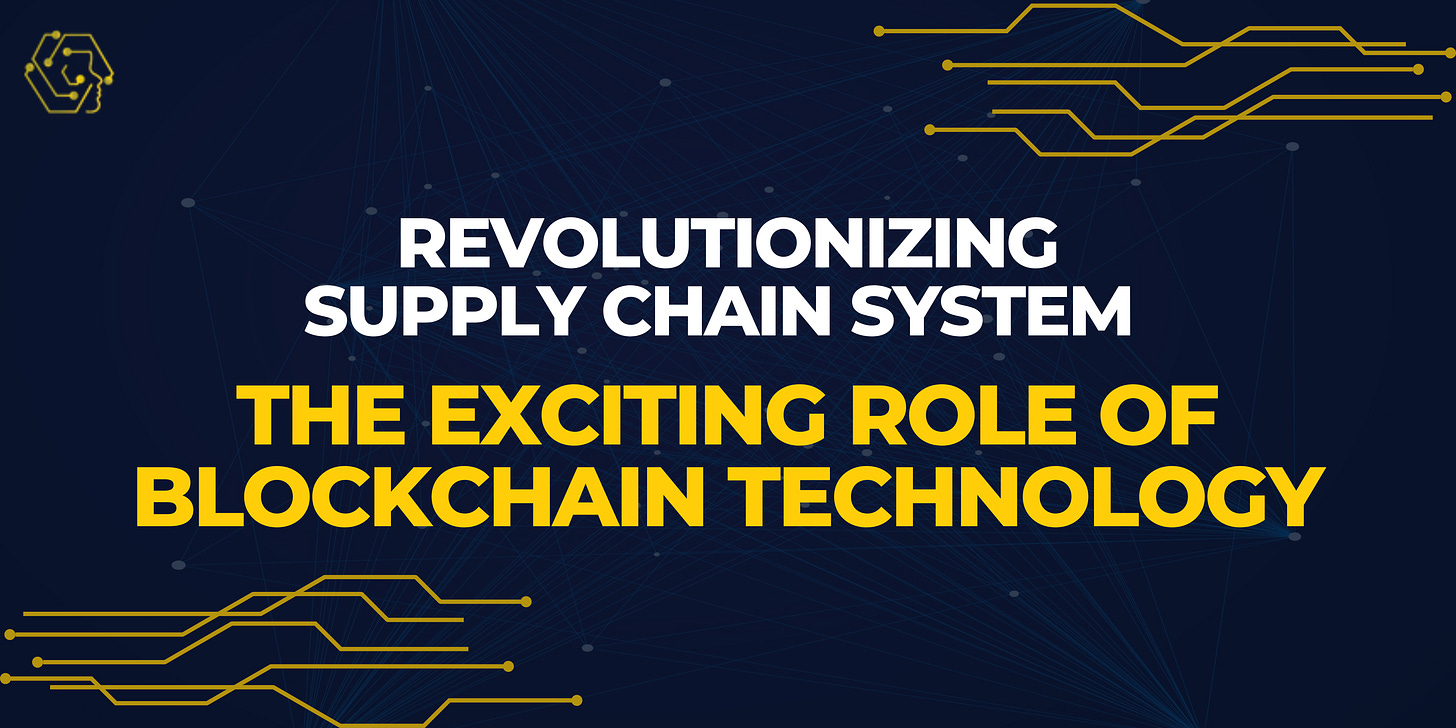Revolutionizing Supply Chain Management: The Role of Blockchain Technology
In today's fast-paced world, where global trade and consumer demands are constantly evolving, supply chain management has become a crucial aspect of business success. But with complexity comes challenges – from tracking goods across multiple intermediaries to ensuring transparency and security. Here's where blockchain technology steps in, transforming supply chain management into an efficient, transparent, and secure process that benefits businesses and consumers alike.
Understanding the Supply Chain Management
Imagine you're shopping for your favorite gadget – a smartphone. Have you ever wondered about the journey it takes from raw materials to the sleek device in your hand? This intricate journey involves multiple stages, suppliers, manufacturers, distributors, and retailers, creating a complex network known as the supply chain. Each stage contributes to the final product, and any disruption or inefficiency in this chain can result in delayed deliveries, increased costs, or even counterfeit products sneaking in.
Blockchain: A Game-Changer in Supply Chain
Enter blockchain technology – the game-changer that is revolutionizing supply chain management. At its core, blockchain is a decentralized digital ledger that records and verifies transactions across a distributed network of computers. Unlike traditional databases, where a central authority governs data, blockchain operates on a trustless and transparent system. So, how does it work its magic in supply chain management?
Enhancing Transparency
Imagine being able to trace every component of your smartphone back to its source with just a few clicks. Blockchain makes this possible by creating an immutable record of every transaction and movement within the supply chain. From the extraction of raw materials to the final product's delivery, every step is recorded, ensuring transparency and accountability.
Combatting Counterfeits
Counterfeit products have plagued supply chains for years, causing financial losses and jeopardizing consumer safety. With blockchain, each product is assigned a unique digital identity that is recorded on the blockchain. This means you can verify the authenticity of your smartphone, ensuring you're getting a genuine product.
Efficient Inventory Management
Picture a world where inventory management is so precise that products arrive exactly when needed, reducing storage costs and waste. Blockchain enables real-time tracking of shipments, allowing businesses to optimize inventory levels and streamline operations.
Faster and Secure Transactions
Traditional payment processes in the supply chain involve intermediaries, leading to delays and increased costs. Blockchain's smart contracts automate and streamline payments, reducing the need for intermediaries and ensuring secure and timely transactions.
Sustainability and Fair Labor Practices
As a conscious consumer, you'd be excited to know that blockchain can help verify sustainable sourcing and fair labor practices. By tracing the origin of raw materials, businesses can showcase their commitment to ethical production, appealing to eco-conscious consumers.
Real-Life World Use Cases
Let's dive into a couple of exciting real-life examples where blockchain is transforming supply chain management:
1. Walmart and Food Safety: In 2018, retail giant Walmart collaborated with IBM to implement a blockchain-based solution for tracking food products. This technology allows Walmart to quickly trace the origin of contaminated products, enhancing food safety and reducing the impact of recalls.
2. De Beers and Diamond Provenance: De Beers, a renowned diamond company, launched "Tracr," a blockchain-based platform that traces the journey of diamonds from mine to market. This not only ensures the authenticity of diamonds but also promotes ethical sourcing and sustainable practices.
Conclusion
Blockchain technology has opened up a world of possibilities for supply chain management. From transparency and efficiency to combating counterfeits and promoting ethical practices, blockchain's potential is awe-inspiring. As consumers, we can look forward to a future where the products we buy are not just items, but stories of responsible production and seamless journeys. The supply chain maze is being illuminated by the brilliance of blockchain – a true revolution that we can all be thrilled about
Author: Ihuoma Anosike - Technical Content Lead WiBA




